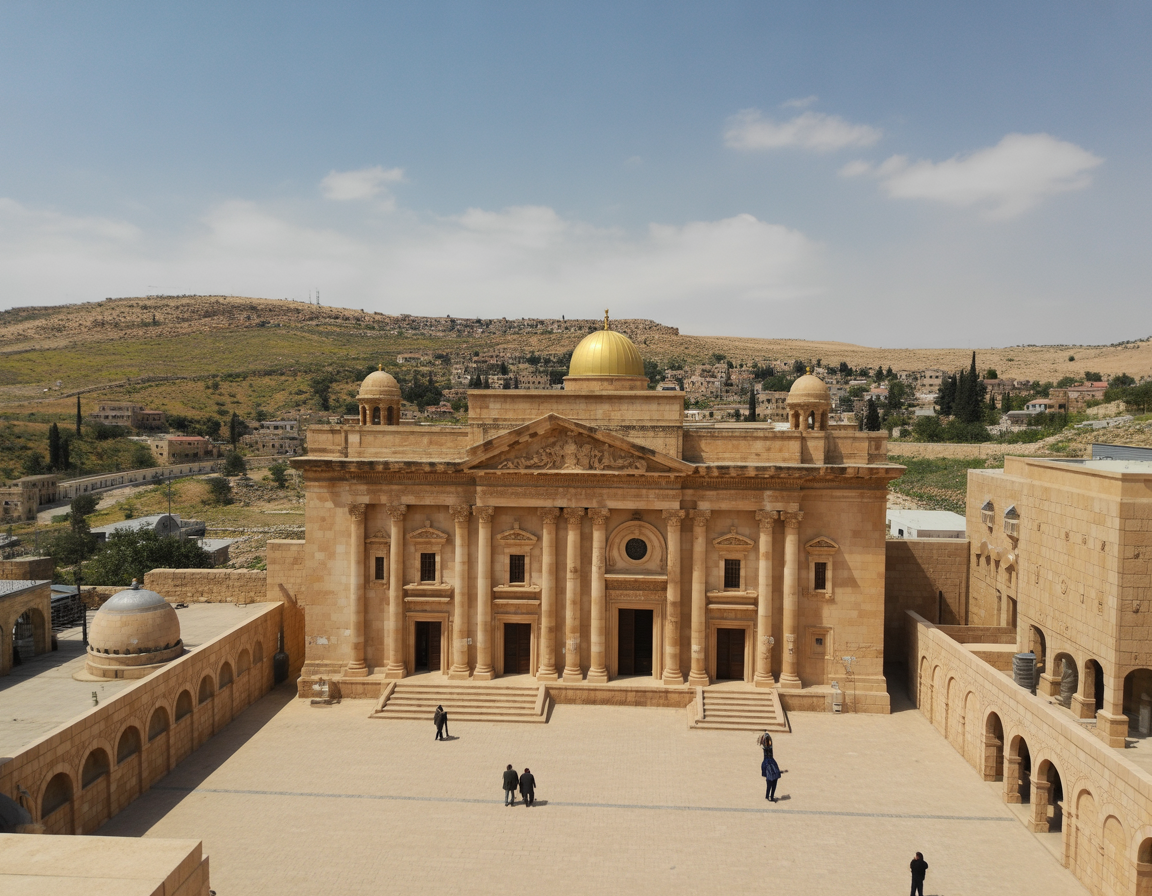Launching the Jerash Eco-Tourism Village and Public Facility Inspections in Irbid
Jordan is stepping up its commitment to sustainable tourism and community development with the recent groundbreaking of the Jerash Eco-Tourism Village. The project, slated to open by mid-2027, aims to enrich the local tourism economy and extend visitor engagement in the scenic northern region. Alongside, significant attention is also being given to updating vital health, education, and community facilities in Irbid, improving the quality of life for residents and visitors alike.
Details of the Jerash Eco-Tourism Village Project
The Jerash Eco-Tourism Village is set on a vast 210-dunum site managed by the Royal Society for the Conservation of Nature. The eco-friendly development will feature a 55-room eco-hotel, a modern visitor center equipped with conference halls and restaurants, and an integrated eco-park that highlights local products and natural attractions.
Positioned in the mountains with panoramic views of Jerash and the Dibeen forests, this initiative is designed to attract more visitors and encourage longer stays, knitting together environmental preservation with tourism growth.
Upgrades in Irbid’s Public Services
At the northern governorate of Irbid, public service enhancement is underway across several sectors. The local Yarmouk Public Hospital, serving roughly 250,000 patients annually, will see the addition of a new outpatient building, expanded dialysis services, and increased access to specialized medical equipment and staff.
Educational improvements include new computer labs, upgraded sanitation, and solar-powered energy installations at schools such as Kufur Soum Secondary School for Boys, benefiting 450 students. Vocational training efforts continue to support individuals with disabilities through centers like Al Amal Center, focusing on skills in tailoring, carpentry, and farming.
Community Initiatives and Sustainable Employment
Supporting local entrepreneurship, the Kufur Soum Pomegranate Producers Cooperative was visited to commend their production of 14 varieties of pomegranate-based goods, alongside traditional farming, livestock, beekeeping, and dairy activities. Expansion of government-backed training programs aims to replicate such successful cooperative models, fostering sustainable jobs in the area.
Historical Context of Eco-Tourism and Sustainable Development in Jordan
Jordan has long recognized tourism as a pivotal economic sector, encompassing diverse niches such as heritage, eco-, adventure, and health tourism. The country’s strategic location in the Middle East, coupled with its rich cultural and natural landscapes—including the famous historical sites of Petra and Jerash—has continually attracted international visitors.
Efforts to develop eco-tourism are part of a broader global movement emphasizing environmental stewardship and community engagement. Over the past decades, Jordan has seen incremental progress in eco-tourism, particularly in areas like Wadi Rum and the Dead Sea shorelines. These projects balance conservation with visitor enjoyment, while supporting local economies and protecting biodiversity.
Jordan’s Tourism Growth Overview
- Tourism contributes about 11% to Jordan’s GDP.
- International tourist arrivals reached approximately 2.5 million by 2012.
- Main markets include Arab nationals, Europeans, and Americans.
- Revenue from tourism was roughly $3.4 billion in 2012.
Forecasting the Impact on Jordanian Tourism and Local Communities
The Jerash Eco-Tourism Village represents a significant investment in sustainable tourism infrastructure that could transform the region into a compelling destination for nature lovers, families, and business travelers. By enhancing visitor facilities while promoting local culture and products, this initiative is expected to extend average tourist stays and diversify the visitor profile.
Moreover, upgraded healthcare and educational amenities in Irbid will complement tourism growth by improving community welfare, making the region more attractive and accessible for both residents and tourists. Strengthening vocational training and cooperative enterprises promises to stimulate job creation and long-term economic resilience in the area.
Table: Key Features of the Jerash Eco-Tourism Village
| Feature | Description |
|---|---|
| Location | Mountains overlooking Jerash and Dibeen forests |
| Land Area | 210 dunums |
| Eco-Hotel | 55 rooms designed for sustainable tourism |
| Visitor Center | Modern facilities with conference halls and restaurants |
| Eco-Park | Showcases local products and natural heritage |
Checklist: Upgrades in Irbid Region
- New outpatient building at Yarmouk Public Hospital
- Expanded dialysis services and medical staff
- Maintenance and facility upgrades for special education centers
- New computer and sanitation facilities, plus solar power for schools
- Expansion of cooperative models for sustainable local employment
The development of eco-tourism villages and enhanced public services within Jordan holds promise not only for boosting the local economy but also for creating attractive destinations that celebrate the synergy between nature, culture, and community wellbeing.
For visitors and residents eager to experience Jordan’s rich landscapes and vibrant culture from a refreshing perspective, the Jerash project marks an exciting step forward.
As Jordan continues to expand its offerings and upgrade essential infrastructure near coastal and inland destinations, the interest in yachting, sailing, and maritime recreational activities in surrounding regions is also likely to grow. For those looking to combine land exploration with marine adventures, services like the international marketplace at GetBoat.com offer an excellent way to rent yachts, boats, and explore the nearby seas, gulfs, and marinas, making it easier than ever to enjoy both cultural tours and aquatic activities.
In summary, the Jerash Eco-Tourism Village project and improvements in Irbid’s public facilities mark a progressive phase for Jordan’s tourism sector. Through sustainable development, enhanced services, and community empowerment, Jordan is positioned to attract a broader range of visitors seeking authentic, eco-conscious experiences along with leisure and adventure in this historic and stunningly diverse destination.

 Jordan Launches Jerash Eco-Tourism Village and Enhances Public Amenities in Irbid">
Jordan Launches Jerash Eco-Tourism Village and Enhances Public Amenities in Irbid">
